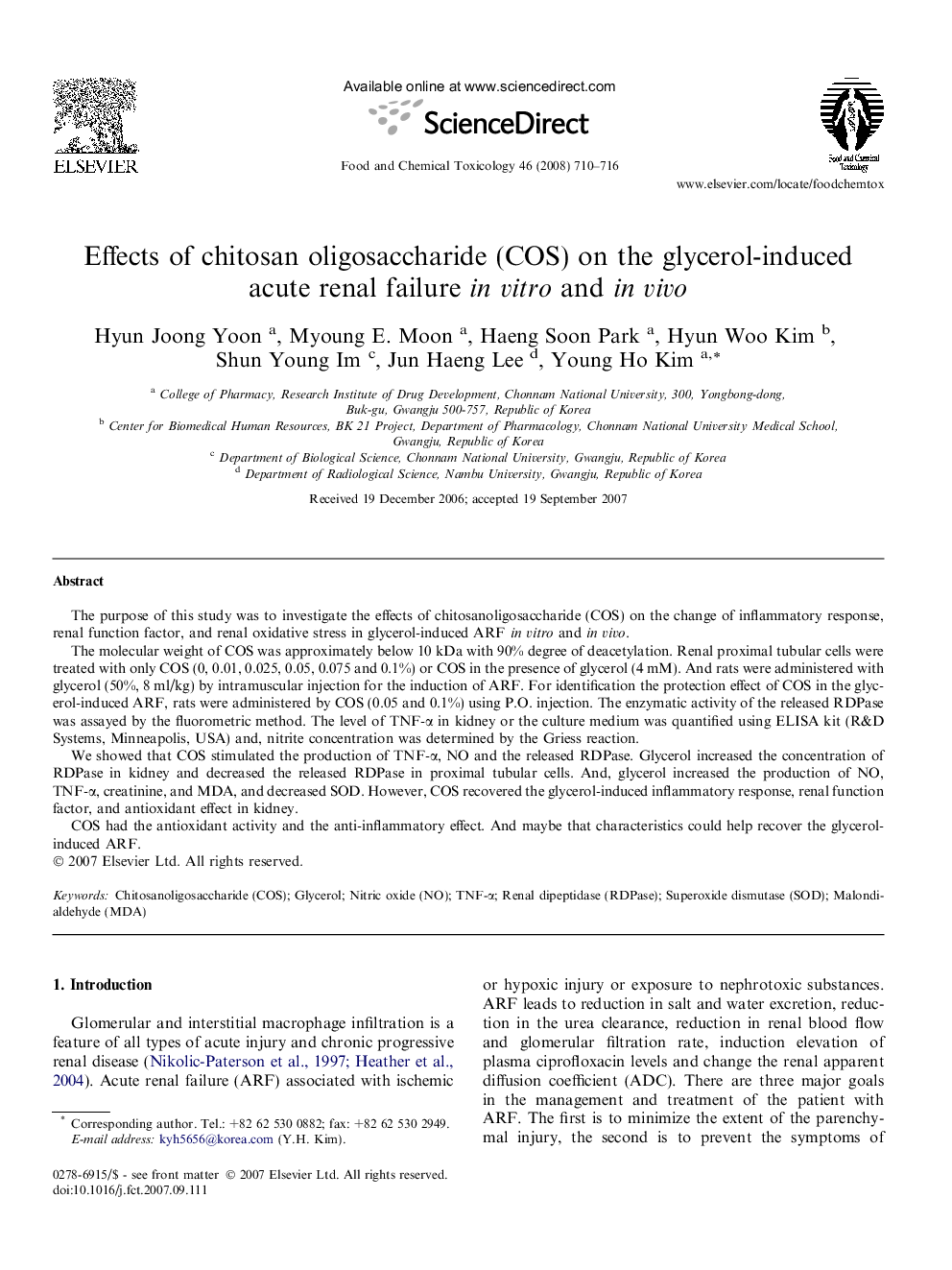| Article ID | Journal | Published Year | Pages | File Type |
|---|---|---|---|---|
| 2587119 | Food and Chemical Toxicology | 2008 | 7 Pages |
The purpose of this study was to investigate the effects of chitosanoligosaccharide (COS) on the change of inflammatory response, renal function factor, and renal oxidative stress in glycerol-induced ARF in vitro and in vivo.The molecular weight of COS was approximately below 10 kDa with 90% degree of deacetylation. Renal proximal tubular cells were treated with only COS (0, 0.01, 0.025, 0.05, 0.075 and 0.1%) or COS in the presence of glycerol (4 mM). And rats were administered with glycerol (50%, 8 ml/kg) by intramuscular injection for the induction of ARF. For identification the protection effect of COS in the glycerol-induced ARF, rats were administered by COS (0.05 and 0.1%) using P.O. injection. The enzymatic activity of the released RDPase was assayed by the fluorometric method. The level of TNF-α in kidney or the culture medium was quantified using ELISA kit (R&D Systems, Minneapolis, USA) and, nitrite concentration was determined by the Griess reaction.We showed that COS stimulated the production of TNF-α, NO and the released RDPase. Glycerol increased the concentration of RDPase in kidney and decreased the released RDPase in proximal tubular cells. And, glycerol increased the production of NO, TNF-α, creatinine, and MDA, and decreased SOD. However, COS recovered the glycerol-induced inflammatory response, renal function factor, and antioxidant effect in kidney.COS had the antioxidant activity and the anti-inflammatory effect. And maybe that characteristics could help recover the glycerol-induced ARF.
